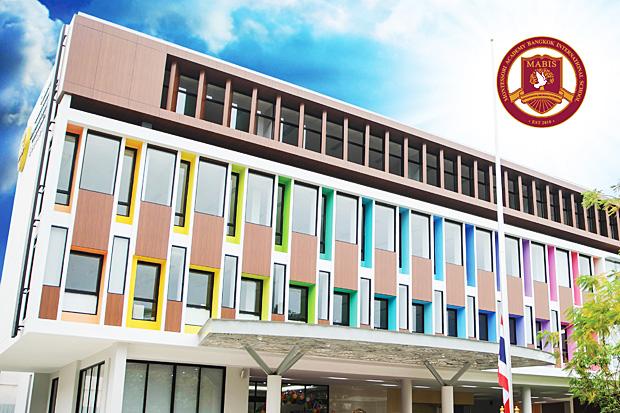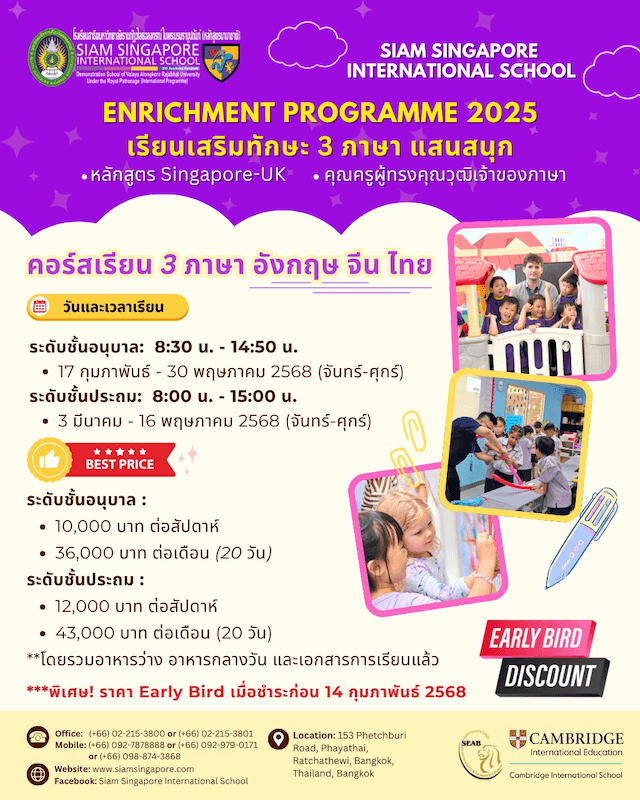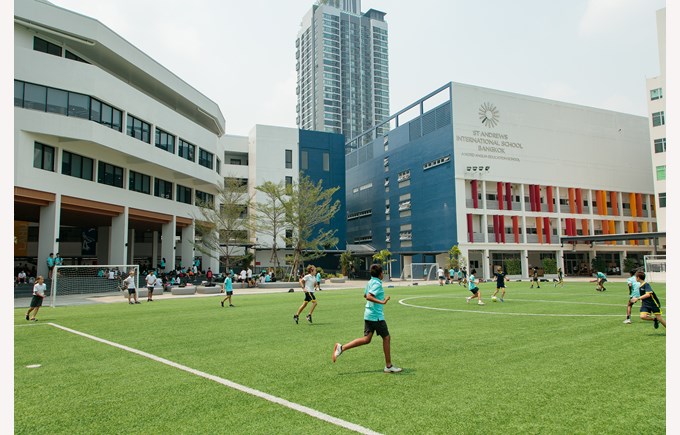For anyone with an interest in Montessori education, especially its applications at the secondary school level, Montessori Academy Bangkok International School (MABIS) is hosting a talk by Dr. Paul Epstein, international speaker, author and expert in adolescent education. He will share his views on the “Development of the Adolescent and the Vision of a Montessori Secondary Program”.
In addition to being a speaker and author, Dr. Paul works in Montessori education as an administrator, teacher, researcher and consultant. He is excited about transformative learning experiences that provide him with both inspiration and data to share, engage and help teachers and parents. Paul holds a certification in early childhood and secondary levels one and two from the American Montessori Society. His work as a speaker and educational consultant has taken him to conferences and schools throughout the United States and also Canada, Great Britain, Russia, Sweden, Mexico, Japan, China, Australia, Nepal and South Africa.
In an article, titled “The Work of the Adolescent”, Paul addresses issues facing today’s teen in a world of massive and relentless change, very much different from the world we, their parents, grew up in. Learning to think is essential, involving a host of skills such as creativity, problem solving, implementing ideas, communication, persistence, applying understanding to new situations, and much more. Learning to think means knowing how to create a future.
The Montessori understanding about learning is stated simply: Children work constantly, and the purpose of their work is to become an independent adult. Remarkably, no two children do their work in the same way or in the same time. And, children will always develop only when they are ready during specific developmental stages across six-year planes: birth to age six; six to twelve; and twelve to eighteen.
In the first plane (birth to age six), children increasingly want to do “everything” by themselves. This helps develop skills like coordination, which in turn evolves brain structure. A newborn gradually develops strength and coordinates physical movements such as sitting, rolling over, crawling, walking, running, jumping… A newborn and the toddler also render heard sounds into comprehensive language and speech.
Children during the second plane (ages six to twelve) seek to understand “everything” there is to know about the entire universe including their place, purpose, and contribution to it. They continue to evolve their ability to be independent along with learning to collaborate, make shared decisions, and learn with others. Adolescents during the third plane (ages twelve to eighteen) seek to enter society and take their place alongside of adults. They do this by learning to make economic decisions.
Montessori also understood that optimal development occurs when children and adolescents work in environments prepared specially for their developmental tendencies. Children and adolescents learn to think with objects, and they learn best from experience. Adolescents are also movement oriented, and they learn—and develop their brains—by talking. Guided by self-expression, trust, commitment, and new ways of thinking. ideal environment for the adolescent is a small learning community that mirrors adult society.
Learn more at the “Development of the Adolescent and the Vision of a Montessori Secondary Program” talk. Free of charge, it takes place on Friday, 7 December 2018, from 2pm to 4.30pm. Please RSVP at may@montessoribkk.com.















